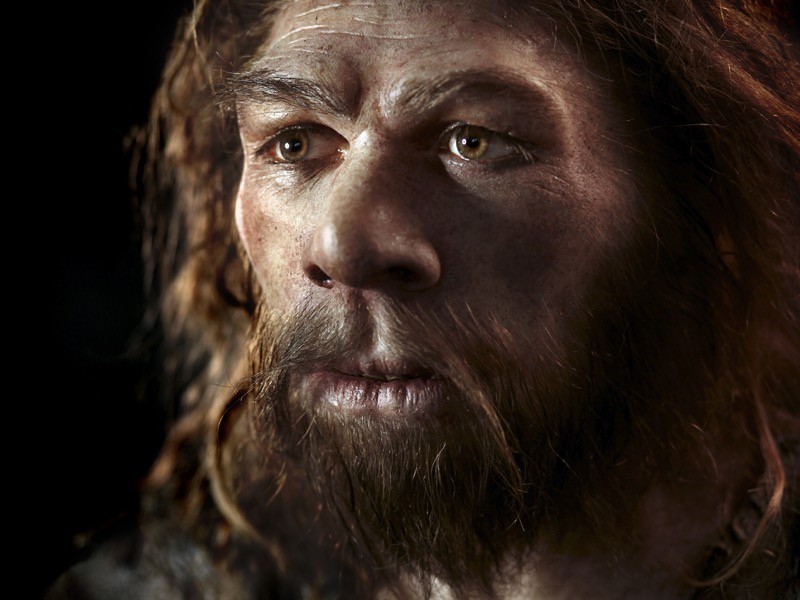Neanderthal gene linked to increased pain sensitivity
23 JULY 2020
People who have inherited nerve-altering mutations from the ancient hominins tend to experience more pain.
Ewen Callaway

A model of the face of a man with a prominent nose and eyebrows, a beard and moustache, long hair and brown eyes.
Reconstruction of a Neanderthal.Credit: S. Entressangle/E. Daynes/SPL
Neanderthals lived hard lives. The ice-age hunter-gatherers eked out a living across western Eurasia, hunting mammoths, bison and other dangerous animals.
Despite their rough and tumble existence, Neanderthals had a biological predisposition to a heightened sense of pain, finds a first-of-its kind genome study published in Current Biology on 23 July1. Evolutionary geneticists found that the ancient human relatives carried three mutations in a gene encoding the protein NaV1.7, which conveys painful sensations to the spinal cord and brain. They also showed that in a sample of British people, those who had
“It’s a first example, to me, about how we begin to perhaps get an idea about Neanderthal physiology by using present-day people as transgenic models,” says Svante Pääbo at the Max Planck Institute for Evolutionary Anthropology in Leipzig, Germany, who led the work with Hugo Zeberg at the Karolinska Institute in Stockholm.
Pain-sensing protein
Researchers have access to only a few Neanderthal genomes, and most of those have been sequenced at a low resolution. This has made it hard to identify mutations that evolved after their lineage split from that of humans some 500,000–750,000 years ago. But in the past few years, Pääbo and his team have generated three high-quality Neanderthal genomes from DNA found in caves in Croatia and Russia. This allows them to confidently identify mutations that were probably common in Neanderthals, yet very rare in humans.
More:
https://www.nature.com/articles/d41586-020-02202-x

